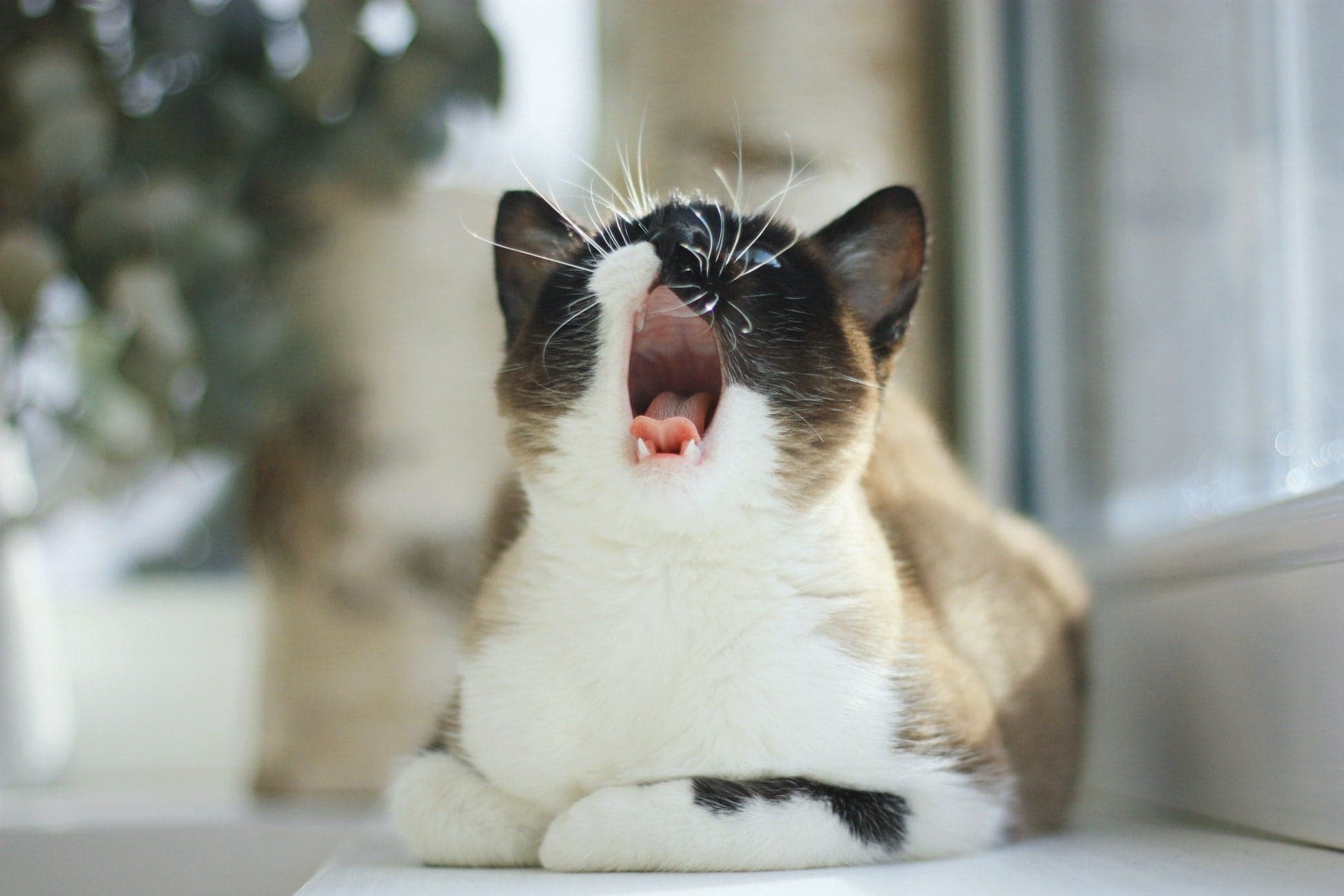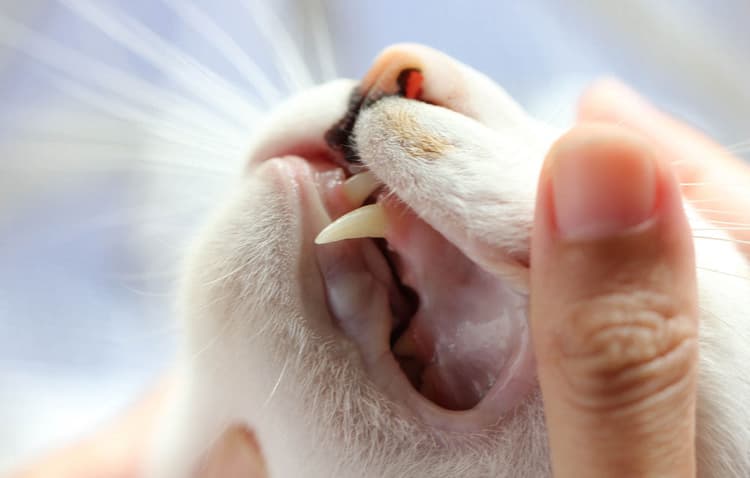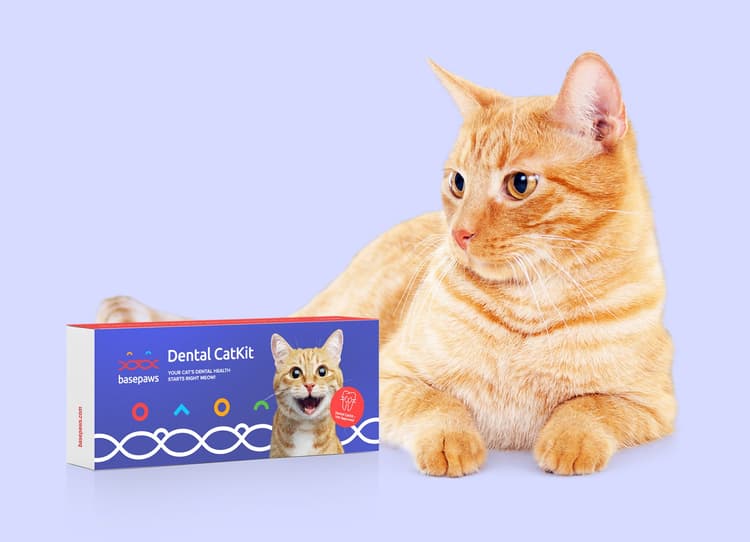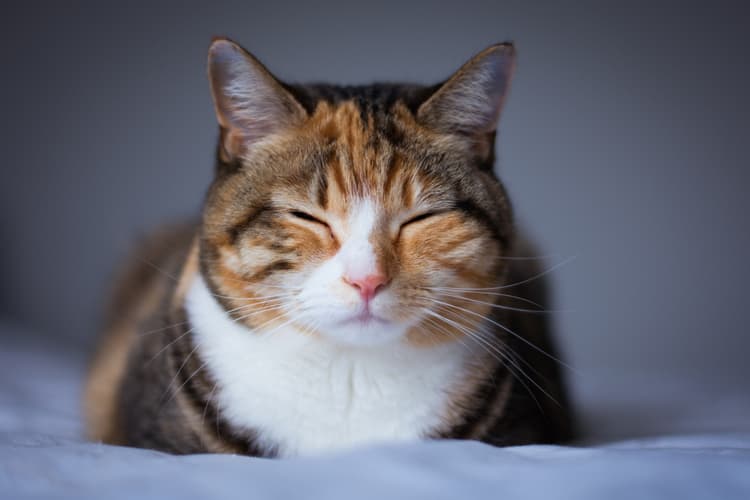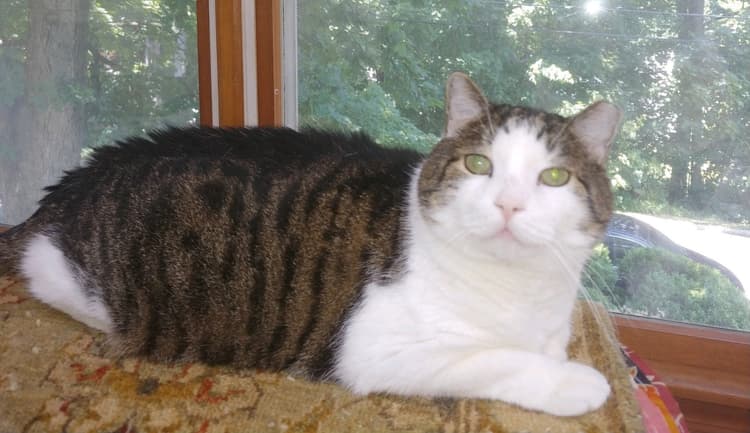What causes bad breath in cats?
There are many possible reasons for bad breath in cats, some of which can be harmless, while others could be related to a more serious medical concern. We categorized them into several groups:
Diet
Cat food may smell delicious to your feline friend, but oftentimes, it does not hold the same appeal for you. Therefore, sometimes the reason for foul breath in cats could be as simple as the meal they just had. This type of bad breath occurs immediately after your cat has had its meal and it disappears after a short while. Feline breath that is consistently bad, however, may be associated with a health problem.
Dental diseases
Dental diseases are caused by an imbalance of microbes in the mouth (dysbiosis). A common microbe-related dental issue is plaque formation on the teeth. Plaque is a sticky, microbe-rich biofilm. If left untreated, the plaque can mineralize into tartar and cause more serious problems such as periodontal disease. Plaque and tartar can affect your cat's breath. Therefore, if your cat has consistently bad breath, checking their teeth for plaque and tartar should be one of the first things on your to-do list. If you notice a persistent bad breath, as well as yellowish plaque, or brownish tartar on your cat's teeth, make sure to visit your cat’s vet as soon as possible. This is important, because if left untreated, further accumulation of plaque and tartar will lead to gum inflammation.
Gum diseases
As mentioned above, plaque and tartar buildup on the teeth can lead to gum inflammation. This type of gum inflammation is referred to as gingivitis and it is typically accompanied by bad breath. Gingivitis is the first stage of periodontal disease. In more severe cases, gingivitis can progress into periodontitis (progressive destruction of the structures supporting the teeth). Inflamed gums will appear red, swollen and they might occasionally bleed. A cat suffering from gingivitis might also drool excessively and exhibit signs of pain while eating.
Metabolic diseases
Although dental and gum diseases are, by far, the most common cause of bad breath in cats, halitosis can also be associated with metabolic disorders such as diabetes, kidney, or liver diseases. This is explained by the accumulation of different chemical compounds in the bloodstream, such as ketones (in diabetes) or urea (in kidney diseases), which are not efficiently removed from the body and can lead to various complications, bad breath included. Halitosis associated with diabetes can have a sweet odour, while kidney disease can be linked to urine-like breath odour. Kidney diseases can also be manifested by a generally foul mouth odour. If you suspect your cat’s bad breath might be related to a more serious general health problem, consult with your veterinarian regarding next steps.
Traumas and foreign objects or food
In some cases, bad breath can be caused by physical traumas in or around the mouth. If you notice an injury on the surface or inside your cat’s mouth, consult with a veterinarian who can appropriately clean the wound and advise you on next steps. If necessary, you might want to temporarily switch to softer food if your cat is struggling with chewing.
The presence of food or foreign objects that have been lodged between the teeth for a long period of time can also be causing bad breath. If you determine that this is the cause of the issue, you can try to gently remove the stuck food or object. Afterwards, clean your cat’s teeth and gums with a soft toothbrush for cats and a cat toothpaste (never use human toothpaste for brushing your cat’s teeth!).
How can I improve and prevent bad breath in cats?
If your cat suffers from bad breath due to a disease or trauma, the first step towards resolving the issue would be to address the underlying cause. Your cat’s veterinarian should be involved in this process. The next step would be to establish a healthy oral hygiene routine for your cat and regularly clean their teeth.
Good oral hygiene is your cat’s best bet to prevent microbial dysbiosis, bad breath and dental diseases. Unlike us, cats can't brush their own teeth, and, unlike their wild cousins, our feline companions’ teeth are not cleaned naturally by chewing on bones and grass. For this reason, it is your responsibility to maintain their oral hygiene.
An appropriate feline oral hygiene routine consists of daily tooth brushing with a gentle toothbrush for cats (or your finger) and cat toothpaste. In addition, dental wipes, water additives, gels and various dental treats and foods can also help you take care of your cat’s teeth.
While it may be easier to work with younger cats when it comes to establishing a tooth brushing routine, it is possible to train older cats as well. To help you get started, we prepared this guide on feline oral hygiene and teeth cleaning. Have you already trained your cat to love their tooth brushing routine?

